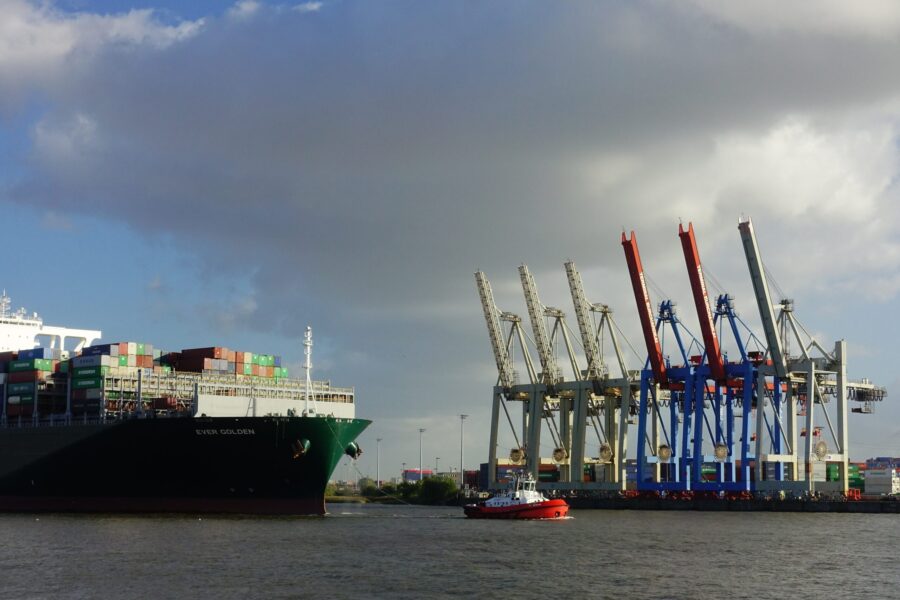Articles | 30 October, 2024
Legal Regulatory Aspects of Maritime Law: What Companies Need to Know

The maritime transport of goods is a essencial activity foreign trade, constituting an instrument that facilitates the globalized economy.
Maritime companies operate within a complex web of legal regulations, ranging safety laws standards, environmental and tax issues, among others.
Understanding and complying with these regulations is essential to minimize tax risks and ensure legal compliance.
Tax Compliance in the Maritime Sector
Tax compliance is na importante matter for maritime companies, given the volume of commercial transactions and the international nature of their activity, and the complexity of the maritime operations involved.
Adhering to tax regulations appropriately not only avoids penalties and administrative fines, but also optimizes financial and operational management.
Fiscal Regulation
Brazilian tax legislation provides for several obligations for the sector, including the payment of taxes such as IRPJ, CSLL, PIS, COFINS and ICMS, depending on the nature of the operations carried out. It is crucial that companies are aware of legislation and jurisprudence on tax matters, the taxes themselves, their respective rates and payment deadlines.
Law No. 10,833/2003 establishes specific rules for the taxation of maritime services, especially in relation to PIS and COFINS. Maritime companies must ensure that they are correctly applying tax rates and taking advantage of all credits to which they are entitled, avoiding excessive tax payments.
A maritime transport company, when evaluating its tax operations, finds that it can recover PIS and COFINS credits relating to port services (either through administrative compensation or through legal action for repeated undue payment), which results in a significant savings.
“Binding Topic No. 118” is under trial before the Federal Supreme Court to recognize the right to exclude the ISS value from the calculation basis for the collection of Contributions for PIS and COFINS. This is an example of the need to stay up to date with tax matters, so that the company can manage its expectations and effective measures to promote more efficient tax engineering.
Compensation of Tax Credits and their Requirements
Tax compensation allows companies to use accumulated tax credits to reduce tax debts. This mechanism is especially useful in the maritime sector, where operations often result in ICMS credits and other taxes. According to the National Tax Code (CTN), the offset of tax credits must meet specific criteria, such as the reciprocity of obligations and the liquidity of tax debts. Current legislation and prevailing jurisprudence also allow the compensation and the refund of tax credits claimed in court, even if the lawsuit has not become final, as long as they are supported by binding decisions of the STF.
To this extent, a shipping company is able to use accumulated ICMS credits to offset ISS debts, improving its cash flow and avoiding delays in paying taxes.
Legal Norms for Safety and Environmental
Shipping companies must comply with strict safety and environmental protection standards, set out in both national laws and international conventions.
The International Safety Management Code (ISM Code), from the International Maritime Organization (IMO), constitutes a set of standards designed to guarantee the operational safety of ships and the prevention of marine pollution. Companies must implement security management systems that meet these requirements. A company, for example, transporting oil, that adopts a safety management system in accordance with the ISM Code, reduces its risk of incidents and improves its reputation in the market.
The International Convention for the Prevention of Pollution from Ships (MARPOL) establishes standards to prevent pollution of the marine environment by ships, including the discharge of substances harmful to marine flora and fauna and the management of waste. By ensuring the implementation of these guidelines, for example, with strict waste management practices, you avoid penalties and environmental damage, contributing to environmental sustainability.
Documentation and Certifications
Correct documentation and certification are essential for the legal and efficient operation of maritime companies. This includes everything from safety certificates to environmental licenses.
Ships must have safety certifications that prove compliance with international standards, such as safety certificates issued by IMO. These certifications are renewed periodically and require rigorous inspections.
Maritime operations that involve potential environmental impact require specific licenses, such as those issued by the Brazilian Institute of the Environment and Renewable Natural Resources (IBAMA). Failure to comply with these requirements may result in operational interruptions. If an offshore oil extraction company has obtained all necessary environmental licenses before starting operations, it guarantees its legal compliance, avoiding penalties.
Other Practices to Observe
Conducting regular internal audits allows you to identify and correct problems before they result in penalties. The audit must include reviewing tax documents, monitoring changes in legislation and verifying the correct application of taxes.
Investing in training the compliance team is essential. Well-trained employees are better able to identify and resolve tax problems, ensuring that the company is always compliant.
Relying on the assistance of tax consultants specialized in the maritime sector can be a differentiator. These professionals have up-to-date knowledge of regulations and can provide practical guidance for implementing compliance strategies. Companies that have tax consultancy support to review their tax processes achieve significant improvements in compliance with legislation and tax efficiency.
Compliance with maritime law regulations is essential for the success and sustainability of companies in the sector.
Implementing effective tax compliance practices, ensuring operational and environmental safety, and keeping documentation and certifications up to date are fundamental steps to minimizing risks and optimizing operations.
By following these strategies, shipping companies can operate more efficiently, reduce costs and avoid penalties, ensuring their competitiveness in the global market.

